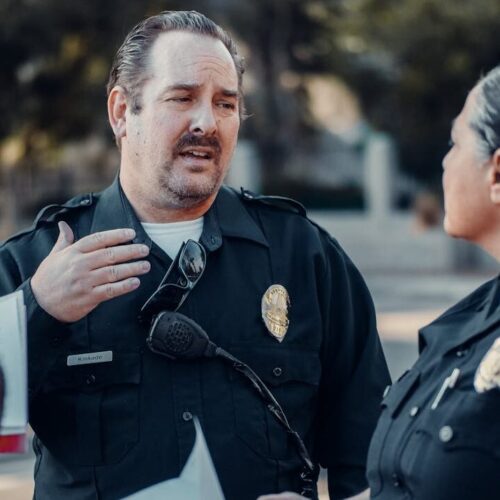
Apply Now to Join the Nationally Recognized Law Enforcement-Mental Health Learning Sites Program
***********This application deadline has passed.***********
In partnership with the U.S. Department of Justice’s Bureau of Justice Assistance (BJA), The Council of State Governments (CSG) Justice Center is seeking applicants to expand the Law Enforcement–Mental Health Learning Sites Program. This program is designed to identify and highlight agencies from across the country with successful police-mental health collaborations (PMHCs) between leaders from law enforcement and behavioral health systems who are willing to serve as examples of effective PMHC response models.
Learning sites will be chosen, not just for their programmatic successes, but also for their ability to provide insight and guidance to other jurisdictions interested in starting or expanding a PMHC. While learning sites do not receive funding directly from BJA or the CSG Justice Center, they are reimbursed for approved costs associated with hosting site visits from other jurisdictions or travel to other jurisdictions to provide training and technical assistance. They also have access to no-cost, expert technical assistance provided by CSG Justice Center staff.
Following a competitive application process, selected jurisdictions will gain national recognition as members of the Law Enforcement–Mental Health Learning Sites Program and will work closely with the CSG Justice Center to provide peer-to-peer learning opportunities to programs nationwide. They may also be called on to collaborate with fellow learning sites and stay abreast of current research and best practices.
If your agency is interested, submit a completed application to Alexis Lacy at alacy@csg.org no later than Friday, January 29, 2021 by 11:59 p.m. E.T. She can also be reached for any application assistance or questions prior to the deadline.
Project Contacts


The sharp rise in school shootings over the past 25 years has led school officials across the U.S.…
Read MoreA three-digit crisis line, 988, launched two years ago to supplement—not necessarily replace—911. Calling 988 simplifies access to…
Read MoreIt would hardly be controversial to expect an ambulance to arrive if someone called 911 for a physical…
Read More Taking the HEAT Out of Campus Crises: A Proactive Approach to College Safety
Taking the HEAT Out of Campus Crises: A Proactive Approach to College Safety
The sharp rise in school shootings over the past 25 years has…
Read More From 911 to 988: Salt Lake City’s Innovative Dispatch Diversion Program Gives More Crisis Options
From 911 to 988: Salt Lake City’s Innovative Dispatch Diversion Program Gives More Crisis Options
A three-digit crisis line, 988, launched two years ago to supplement—not necessarily…
Read More Matching Care to Need: 5 Facts on How to Improve Behavioral Health Crisis Response
Matching Care to Need: 5 Facts on How to Improve Behavioral Health Crisis Response
It would hardly be controversial to expect an ambulance to arrive if…
Read More











